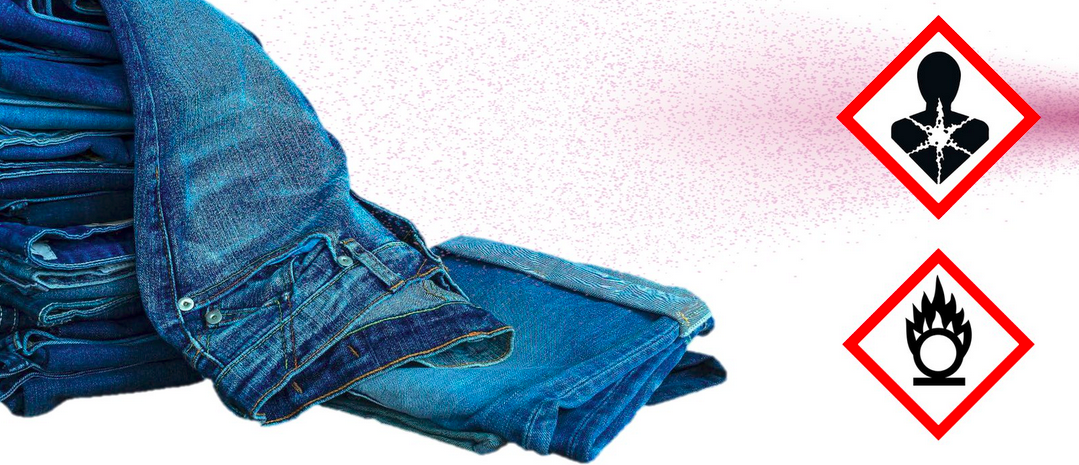
Bleaching chemicals used on jeans have devastating effects on workers and environment
A new report published today by Clean Clothes Campaign Turkey reveals the harmful effects of potassium permanganate (PP) bleaching of jeans on worker health and the environment. The report, which covers 44 brands, focuses on the impact of PP chemical use on worker health and environmental pollution in the Ergene Basin, which is now unsuitable for agricultural purposes.
Denim sandblasting, previously employed to achieve a worn look for jeans, was banned in Turkey in 2009 due to the long-lasting struggle of garment workers afflicted with silicosis. Following the ban, the use of the dangerous chemical potassium permanganate (PP) became widespread in bleaching jeans. PP is a dark-coloured, odourless, sand-like solid chemical known for its easy application and rapid action. Despite PP being classified as a hazardous substance by the European Chemicals Agency (ECHA), Turkey has no legislation limiting or regulating its use.
PP is brushed or sprayed onto jeans by workers, who consequently face skin problems, blurred vision, respiratory issues, chest tightness, and lung inflammation. Long-term exposure to PP causes serious damage to the liver and kidneys.
Furthermore, the over five tons of PP used worldwide daily cause severe damage to the surrounding environment due to manganese, a heavy metal that does not biodegrade and damages the DNA of aquatic creatures. Bleaching 100 kilograms of textile material with PP causes an estimated 500 liters of wastewater. The Ergene Basin, researched in this report, has been grappling with water, soil, and air pollution from industrial discharge for a long time. The Ergene River is referred to as the "dead river".
Continued use of PP in major brands’ supply chains
Of the 44 brands examined in the report, only 12* committed to the Manufacturing Restricted Substances List (MRSL) of the Zero Discharge of Hazardous Chemicals (ZDHC), which is a list of chemical substances banned from intentional use in the textiles, apparel, and footwear industry. This list does not entirely prohibit the use of PP but strongly recommends occupational health and safety measures. Indeed, in the report, even brands that have committed to the MRSL, such as Inditex and Next, admit to using PP in their production. They assert they are exploring chemical alternatives but do not specify a date for phasing out the use of PP.
Clean Clothes Campaign therefore recommends brands to:
- Improve their supply chain transparency, including information about production locations and chemicals used in their products.
- Develop and implement policies regarding chemical usage in their supply chains, including health and safety measures and environmental damage mitigation.
- Immediately reduce the use of PP, understanding that environmental damage and occupational diseases develop over many years.
Read the full report.
* H&M, Mango, Indıtex, Levi Strauss, Marks&Spencer, Benetton, Hugo Boss, Lacoste, PVH, Ralph Lauren, Diesel, Next. Mavi says it will adopt MRLS by 2030; Koton says it will adopt the standard "in the coming years".